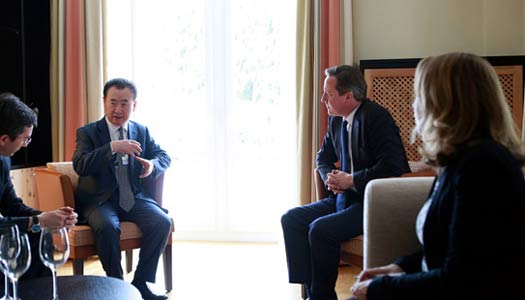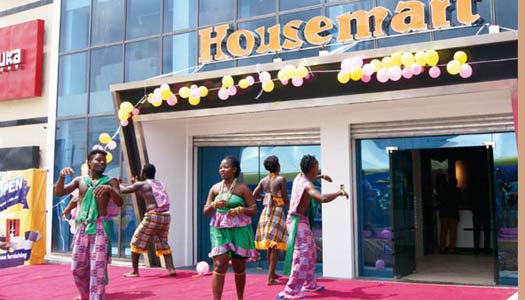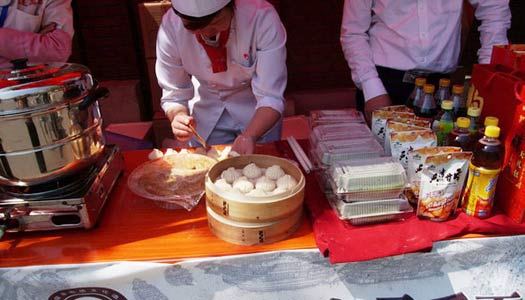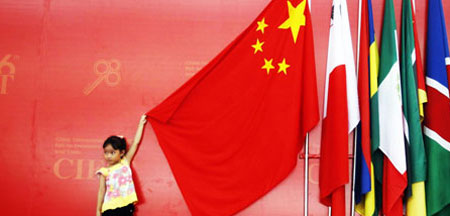Decade of growth between China and Uganda
Updated: 2012-10-23 09:26
|
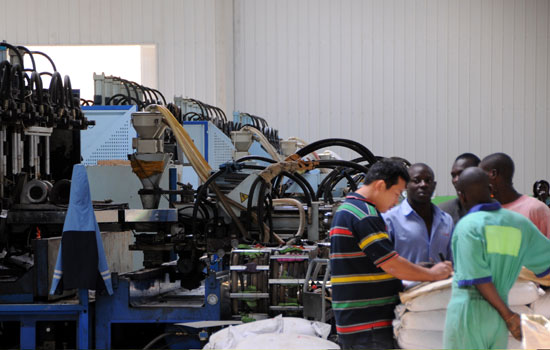 |
|
A shoe factory in a Chinese industrial park in Uganda. In 2005, Chinese investment in Uganda was limited to a few hotels and restaurants. But within just five years, China had become the country's second-biggest trading partner after the United Kingdom. [Photo/Xinhua] |
Sam Kutesa, Uganda's minister of foreign affairs, recently said that large State-owned enterprises from China have been instrumental in improving the country's infrastructure.
China Communications Construction Co Ltd, for instance, has been in the country since 1996, and will play a major role in building the Kampala-Entebbe Expressway - Uganda's first toll highway connecting the capital to the country's most important international airport. The expressway is expected to open within five years.
The $476 million project benefited from a $350 million low-interest loan from the Export-Import Bank of China, with the rest raised by the Ugandan government, said China Communications Project Manager Zhang Weidong.
The construction was an enormous challenge, not least because most of the raw materials needed - such as iron, cement, and much of the machinery - had to be imported, he said.
But crucially for the local economy, 90 percent of the employees on the project will be Ugandan, with some expected to take up important management positions.
After many years working for Chinese construction projects in Africa including Uganda, Zhang said local workers praise the training they have been given by their Chinese employers, and many have become highly experienced as a result.
"Many have picked up good Mandarin, and say they take pride in working for a Chinese company," he added.
"All the companies I have worked for have made long-term development plans in Africa."
Charles Lwampa's 36-year-old boss Zhang Hao is arguably the best-known Chinese businessman in Uganda. His company, Zhang's Group, is considered the country's biggest Chinese employer.
Like many other Chinese entrepreneurs, he started up in Uganda as a simple importer in 1999, of everything from shoes to schoolbags, and fishing nets to nails.
But that import business has grown since into a diversified enterprise encompassing a restaurant, a firm selling flat-screen televisions and a security company.
With a local workforce of 1,400, Zhang Hao said he gradually dropped his early ambition of simply "making a fortune, and leaving".
"Reputation is everything here. That's based on quality products and having quality people working for you," he said.
"It's important for companies arriving in Africa to show they mean to stay, to bed themselves into the local community, and to establish a reputation.
"Chinese business people need to realize, too, they have to be a little more patient than they might expect to be back home, or elsewhere," said Zhang Hao.
"This is a place to consider long-term investment."
- BYD exports three electric cars to Thailand
- Grid gets first jolt of residential solar power
- US now largest buyer of China's exports
- China's outbound M&As on the rise
- Tobacco control may entail price, tax rises
- Quanzhou becomes pilot financial reform zone
- New automobiles shine at Geneva Motor Show
- World's longest high-speed rail 'on track'
- Jiugui Liquor involved in plasticizer scandal again
- Accident reignites school bus safety concerns
- China to revise labor law
- Trademark registration under scrutiny
- Dinner ban takes toll on liquor firms
- CIC tables bid for London's Chiswick Park
- Property buyers eye overseas market
- Call for law to protect personal information
- China to cut train ticket prices
- Christmas business
- Solar industry to get jolt from new policies
- KFC chicken under spotlight




